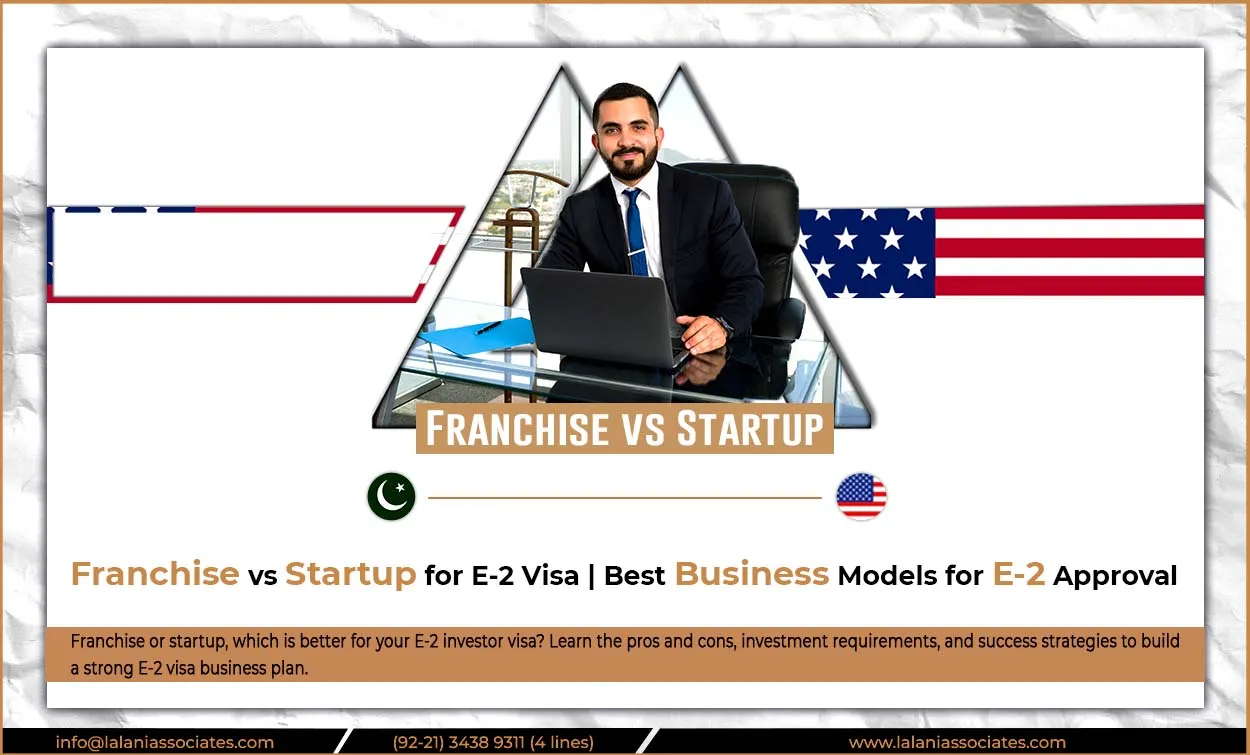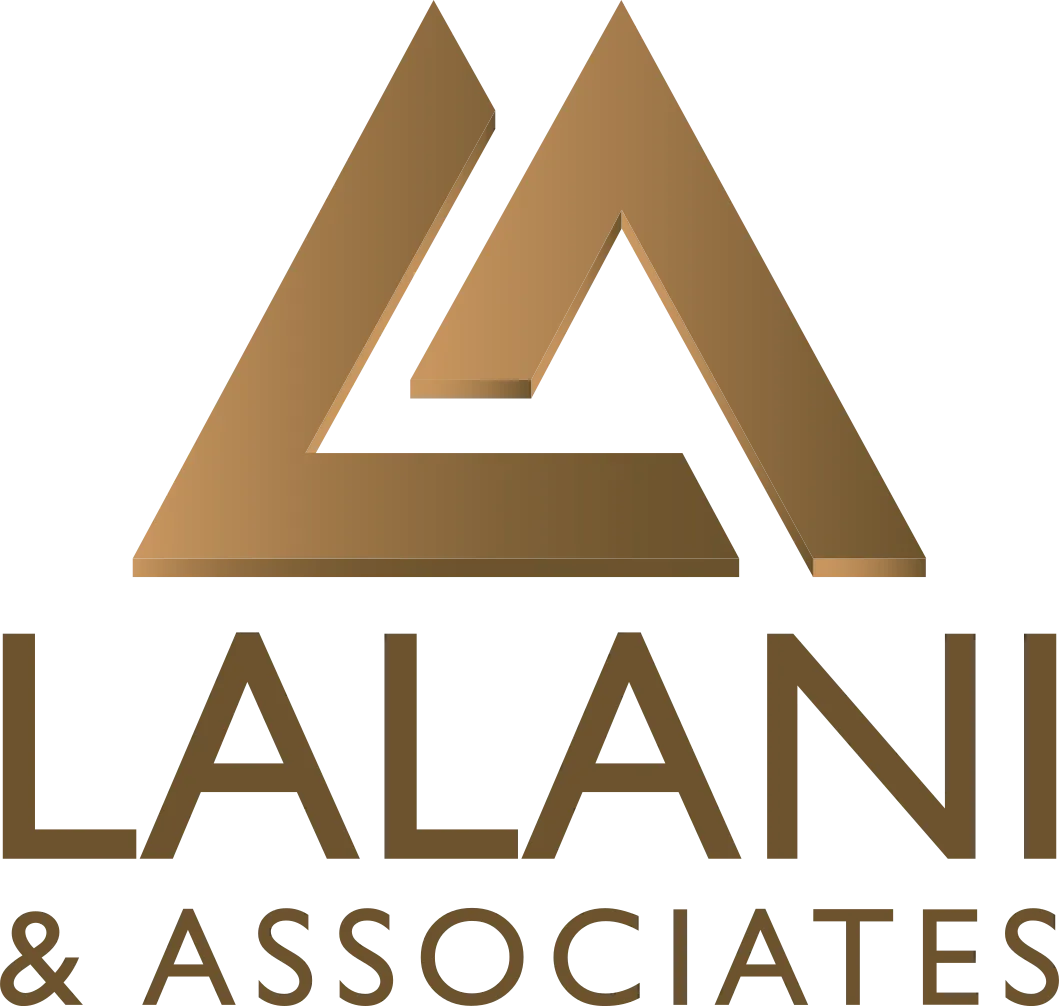
So, you’re an entrepreneur ready to take the big leap into the U.S. market with the E-2 investment visa. You have the money, the drive, and the vision. But there is one important question that stands in your way:
👉 Should you put money into a franchise that has an established business plan, or should you create your own firm from scratch?
So, you’re an entrepreneur ready to take the big leap into the U.S. market with the E-2 investment visa. You have the money, the drive, and the vision. But there is one important question that stands in your way:
Here’s the truth: neither is automatically better.
It doesn't matter if you choose a franchise or a startup; what matters is how good your application is. A weak franchise plan can fail, while a solid startup plan can prosper.
This article goes over the true merits and downsides of each choice, but not in general commercial terms. It does so from the point of view of an E-2 visa adjudicator.
Understanding the E-2 Investor Visa
Before we talk about company ideas, let's go over the essentials of the E-2 visa.
The E-2 visa is a non-immigrant visa that allows citizens of treaty countries to enter and work in the U.S. based on an investment they own.
Key Requirements for an E-2 Visa:
1. Substantial Investment – The investment needs to be big enough to guarantee the business's success. There isn't a specified minimum; however $100,000 is often used as a standard.
2. Bona Fide Enterprise – The business has to be legitimate, running, and making money. No stocks or undeveloped land as passive investments.
3. Not Marginal – The business needs to make more money than just enough to support you and your family. It should help the U.S. economy and create jobs.
4. Develop and Direct – You need to prove that you will actively run and control the business, not just sit back and watch as an investor.
With these rules in mind, let’s see how franchises and startups measure up.
The E-2 Adjudicator’s Perspective
Think like an immigration officer. Their main question is:
👉 “Is this a real, viable business that will benefit the U.S. economy, and is this applicant capable of running it?”
They look at:
• Where the money comes from and how it’s invested.
• Whether the business is ready to operate.
• Whether it will create jobs.
• Whether you are actually in charge.
Understanding this mindset helps you see why both franchises and startups can either shine or fail.
The Franchise Pathway
Buying a franchise seems attractive for many E-2 investors. After all, you’re purchasing a proven business model with brand recognition and support.
Why Entrepreneurs Love Franchises
• Established brand credibility.
• Defined startup costs.
• Training and ongoing support.
• Easier to convince investors and lenders.
Benefits of Choosing a Franchise for E-2
• Instant Credibility: Adjudicators know the franchise already has a track record, which makes your case look less risky.
• Clear Investment Trail: The Franchise Disclosure Document (FDD) clearly outlines fees and expenses, making it easier to prove a “substantial” investment.
• Financial Data Support: Some franchisors provide performance averages, which help show the business isn’t marginal.
Common Pitfalls of Franchise Applications
Here’s where many entrepreneurs trip up:
The Autonomy Paradox
Franchise agreements are restrictive. You may be limited in branding, suppliers, and operations. Immigration officers want to see you developing and directing the business, not just executing corporate rules.
The Boilerplate Plan Trap
Submitting the franchisor’s generic business plan is a recipe for denial. Adjudicators can spot a template instantly. You must craft a custom plan with local market analysis.
Incompatible Models
Not all franchises work for E-2. Small kiosks, part-time setups, or semi-absentee models don’t meet the requirements. Officers may see them as too small or marginal.
The Startup Pathway
On the other side, starting your own business gives you freedom and full control, but also more scrutiny.
Why Startups Appeal to E-2 Applicants
• Full autonomy over decisions.
• Ability to design the business model around E-2 requirements.
• Flexibility in scaling and expansion.
Strengths of a Startup for an E-2 Visa
• Clear Control: 100% ownership shows that you’re in charge.
• Flexibility: You decide how much to invest and how to structure growth.
• Your Expertise Counts: Your personal background strengthens credibility.
Challenges and Reasons for Denial
The Credibility Gap
Unlike franchises, startups don’t have a built-in reputation. You must prove your business is real and viable.
Intense Scrutiny on the Plan
Every assumption in your business plan will be questioned. You need strong research, competitive analysis, and realistic financial projections.
Proving Substantial Investment
You must carefully document every dollar you invest and explain why it’s necessary for operations.
Head-to-Head: Franchise vs. Startup
| E-2 Criterion | Franchise Model | Startup Model |
|---|---|---|
| Substantial Investment | Clear fees & costs via FDD. | Flexible investment, can be tailored. |
| Bona Fide Enterprise | Strong credibility from the brand. | Must prove from scratch with evidence. |
| Not Marginal | Easier to project job creation. | Can design an aggressive growth plan. |
| Develop & Direct | Risk: restrictive agreements. | Strong advantage: full control. |
The Truth About “Safer” Options
There’s a myth that franchises are safer for E-2 approval. Another myth says startups are too risky.
Reality check: neither is guaranteed.
✅ A franchise can fail if you can’t prove leadership.
✅ A startup can succeed if backed by strong planning and research.
It all comes down to the strength of your application.
Key Takeaways for E-2 Applicants
• No universal “better” choice, depends on your situation.
• Quality of a business plan matters more than business type.
• Immigration officers want proof, not promises.
The Universal Success Formula for E-2 Visa
No matter which path you choose, these are non-negotiable steps:
1. Create a Custom Business Plan – Forget templates. Use local market data, competitor research, and detailed hiring plans.
2. Prove Your Money Trail – Document every dollar from its source to its investment.
3. Show Your Leadership – Highlight your role as the decision-maker.
4. Focus on Job Creation – The fastest way to overcome the “marginality” test.
5. Highlight Market Research – Show why your business will thrive in the specific U.S. region.
Pro Tips for a Winning E-2 Business Plan
• Don't use templates from the franchisor.
• Look at your competitors and the people you want to reach.
• Make the timelines for employing employees clear.
• Make your function as an executive obvious.
Common Mistakes Applicants Make
• Picking enterprises that don't need a lot of money.
• Sending in plans that have been used before or are generic.
• Not showing real business activity.
• Not paying attention to the "develop and direct" criteria.
The Role of Immigration Consultants
While you can prepare the application yourself, many entrepreneurs find success by working with an immigration consultant.
Firms like Lalani & Associates (without naming competitors) can help:
• Make business ideas that are just right for you.
• Find business models that are good for E-2.
• Get ready the paperwork for your finances and investments.
• Use expert tactics to make your case stronger.
Conclusion
There is no clear victor between franchise and startup for an E-2 visa at the end of the day.
👉 A franchise gives you credibility but limits control.
👉 A startup gives you control but demands more proof.
Your real focus should be on building a powerful, persuasive application that convinces the adjudicator that your business is:
• Substantial
• Bona fide
• Not marginal
• Under your control
If you prepare well, either option can take you to E-2 success in the US.
FAQs
1. How much money do you need to invest to get an E-2 visa in the US?
There is no legal minimum, but most people who get the job put down at least $100,000.
2. Which businesses are most likely to get an E-2 visa?
Construction, cleaning, food service, and health and wellness franchises are all popular service-based enterprises.
3. Is it possible to receive an E-2 visa with a franchise that costs less than $100,000?
It may happen, but it's not safe. Applications with lesser investments are looked at more closely.
4. Do I need to hire people before I can get an E-2 visa?
You don't have to do this all the time, but you do need to establish that you have a good plan to hire U.S. workers in the first few years.
5. Can you get a green card with an E-2 visa?
The E-2 is not an immigration visa. But it can be renewed forever, and it can occasionally lead to further green card choices.


0 Comments